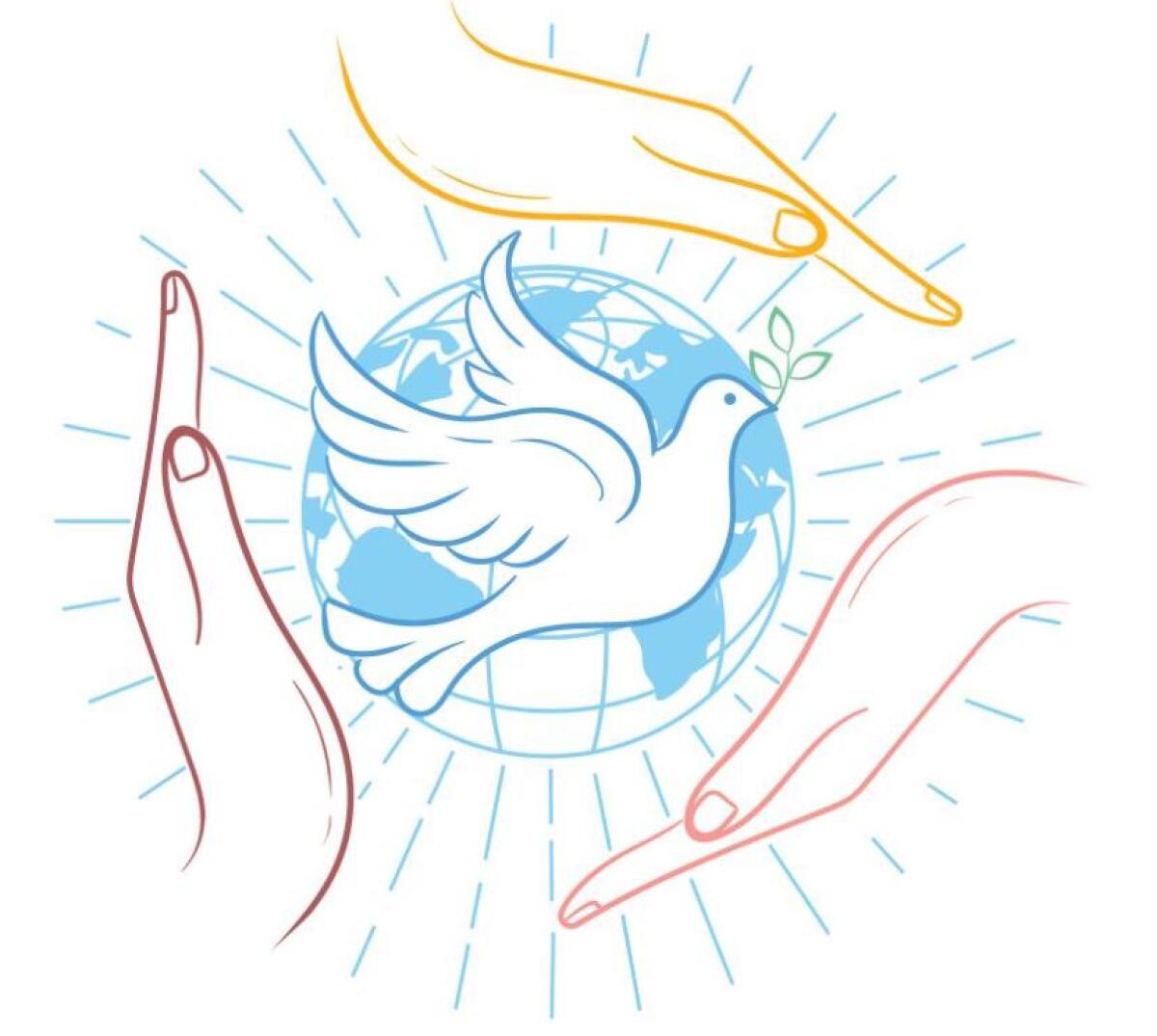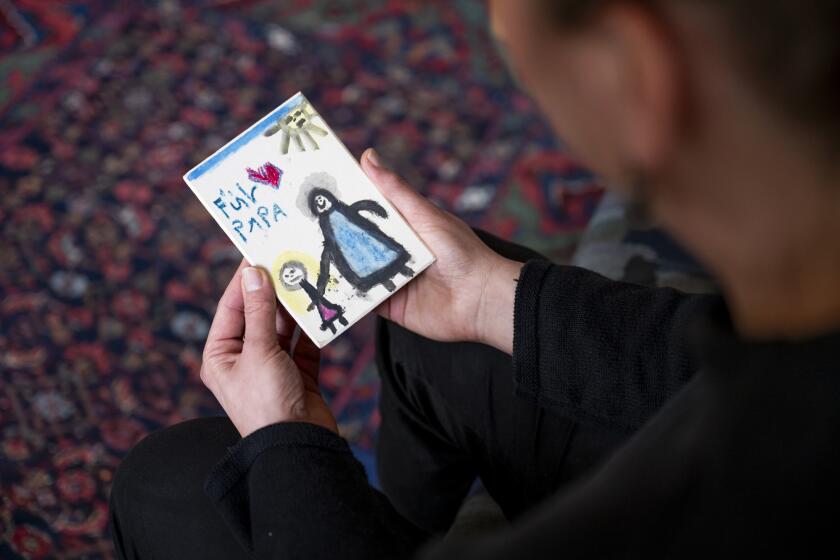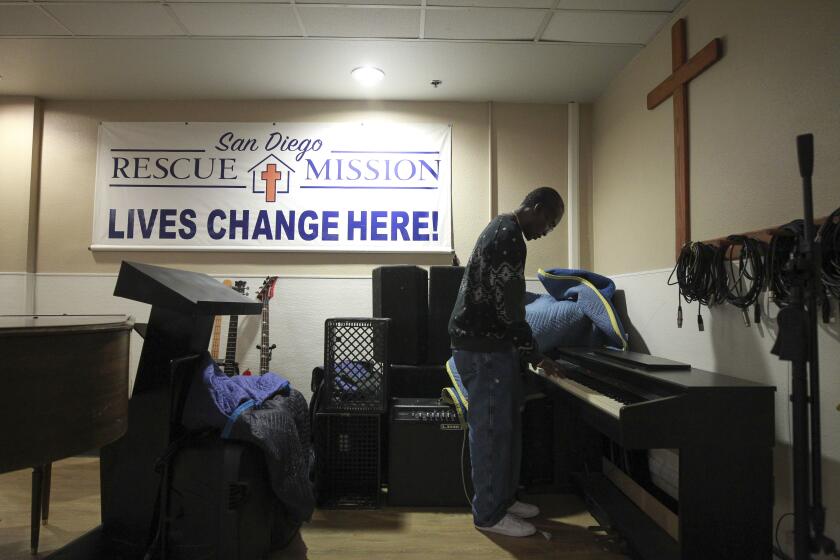Opinion: The U.S. must rethink its foreign policies, priorities

What would the world look like if our taxes were spent on human services instead?
Barron is a board member of the Peace Resource Center of San Diego, heading the de-escalation training and investigating peace economies. She lives in Santee.
Last month marked a terrible benchmark in U.S. “self-defense.” Seventy-six years ago, the U.S. dropped two annihilating atomic bombs on the Japanese people. Both cities were home to millions of people, Hiroshima and the industrial city of Nagasaki. Japan had been an aggressively militarized society with a strong industrial base when we dropped “Little Boy” and “Fat Man” — ironic names for catastrophic weapons.
The U.S. responded to increasing Japanese military power with an arms race that temporarily created two suns in our skies. We needed war to stop war. Did it? The U.S. nuclear attack created terrible consequences, a chain and swell of events that now threaten human (and world) existence.
We are repeatedly told that we are an exceptional people — smart, energetic, richer than any other country — with the best schools, best democracy, best military and more bombs than other countries. Our minds have been militarized — through our schools, our police, our sports, our media, even our video games. Are we exceptional enough to demilitarize our minds (and society) before it is too late?
On Aug. 6, 76 years after the first nuclear attack, San Diegans gathered around the Friendship Bell on Shelter Island in a challenge to us all to do better. San Diego WISH (Worldwide Initiative to Safeguard Humanity) convenes these annual gatherings to focus on the terrible cost of nuclear war and its blowback. These International Peace & Humanity Day events challenge us directly to rethink our foreign policies of complete domination. And to consider the costs to all of us and to our humanity.
Do we have the collective will to step back from endless war, nuclear or not? Japan leadership could not, resulting in generations of blowback from its attempts to counter military force with force. Nuclear war clearly leaves no winner in the world atomic race. Nor does endless war (whatever the weapons used). The United Nations recognized this clear contradiction and finally moved in 2017 to ban atomic weapons.
Not all agreed. Not surprisingly, countries like the U.S. with nuclear arsenals voted against the ban.
Skipping ahead, the Biden administration is on track to push through Congress the biggest military budget by far as it considers the next generation of nuclear weapons. Militarized minds make militarized budgets. Peace groups across the country are sounding the alarm, and coming together to push Congress and our country back from the precipice.
The Department of Defense justifies our wars as “defense of country.” Let’s be clear: “Defense” covers a wide array of U.S. interests, and not all are related to defense against imminent attack. We could be spending more tax dollars to bolster health care and housing and transit during the COVID-19 pandemic.
What would the world look like if our taxes were spent on human services instead? Would Americans have better access to essential goods, medicines, clean water? The recent U.S. action to provide vaccines to those countries without them is what our foreign policy could be all the time. The Peace Resource Center of San Diego recommends a strategy that shifts our minds and hearts towards peace.
We should:
1) Include peace studies and ethnic studies in our school curricula.
The outright war happening now against the introduction of ethnic studies into the California school curricula reflects the culture wars happening between old war ideologues and peacemakers in our government. We applaud schools now using Indigenous practices (aka restorative practices) to resolve conflict in our schools rather than bringing in school police.
2) Diversify our economy, using a regenerative approach that safeguards our earth for the future.
The present military-industrial-fossil fuel economy has been the root of modern warfare and deadly pollution. A federal Department of Peace Economy overseeing the equitable distribution of our shared resources could support local shared economies.
3) Fulfill the original mandate creating the League of Nations to “maintain peace.”
Let’s empower the United Nations as a super inter-government association to oversee and establish peaceful coexistence. Let’s promote women in leadership and power roles within government, non-governmental organizations and government contractors.
Please join us at prcsd.org during Peace Week San Diego 2021 through Sept. 26.
Get Weekend Opinion on Sundays and Reader Opinion on Mondays
Editorials, commentary and more delivered Sunday morning, and Reader Reaction on Mondays.
You may occasionally receive promotional content from the San Diego Union-Tribune.




